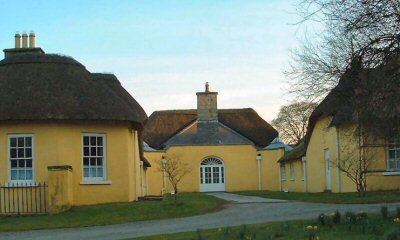The Yeats poem (opt. cit.) has forever enshrined in verse the name of Lord Edward Fitzgerald. This Irish conspirator (1763-1798) fifth son of James, first duke of Leinster, by his wife Emilia Mary, daughter of Charles Lennox, second duke of
In 1773 the Duke of Leinster died, and his widow soon afterwards married William Ogilvie, who superintended Lord Edward’s early education. Joining the army in 1779, Lord Edward served with credit in America on the staff of Lord Rawdon (afterwards marquess of Hastings), and at the battle of Eutaw Springs (8th of September 1781) he was severely wounded, his life being saved by a recently-freed black slave named Tony, whom Lord Edward retained in his service till the end of his life.
In 1783 Fitzgerald returned to
The love-sick mood and romantic temperament of the young Irishman found congenial soil in the wild surroundings of unexplored Canadian forests, and the enthusiasm thus engendered for the “natural” life of savagery may have been already fortified by study of Rousseau’s writings, for which at a later period Lord Edward expressed his admiration.
In February 1789, guided by compass, he traversed the country, practically unknown to white men, from Frederickstown to Quebec, falling in with Indians by the way, with whom he fraternized; and in a subsequent expedition he was formally adopted at Detroit by the Bear tribe of Hurons as one of their chiefs, and made his way down the Mississippi to New Orleans, whence he returned to England.
Finding that his brother had procured his election for the county of Kildare, and desiring to maintain political independence, Lord Edward refused the command of an expedition against Cadiz offered him by Pitt, and devoted himself for the next few years to the pleasures of society and his parliamentary duties. He was on terms of intimacy with his relative C. J. Fox, with R. B. Sheridan and other leading Whigs. According to Thomas Moore, Lord Edward Fitzgerald was the only one of the numerous suitors of
His Whig connections combined with his transatlantic experiences to predispose Lord Edward to sympathize with the doctrines of the French Revolution, which he embraced with ardour when he visited
While in Paris Fitzgerald became enamoured of a young girl whom he chanced to see at the theatre, and who is said to have had a striking likeness to Mrs Sheridan. Procuring an introduction he discovered her to be a prot
